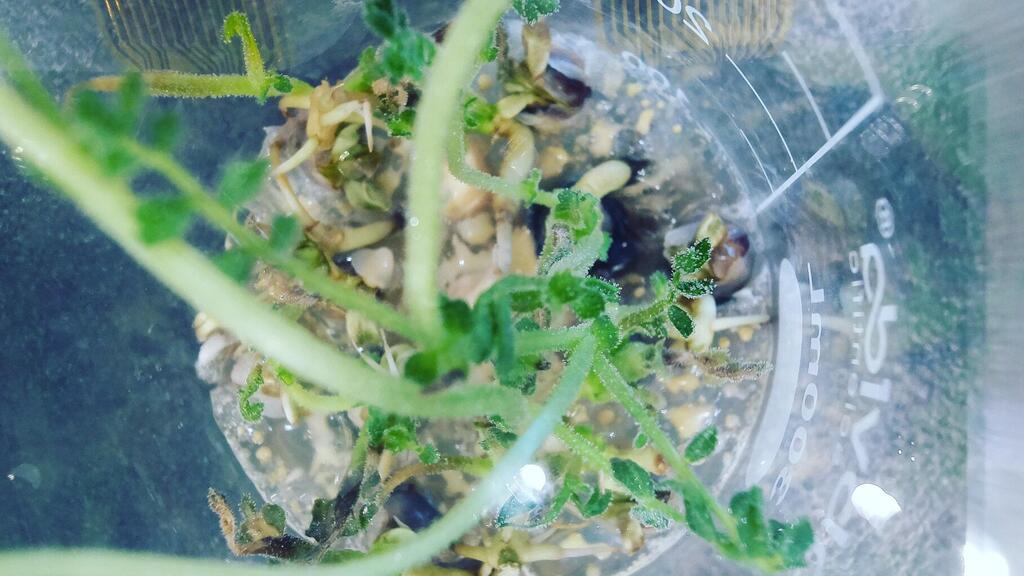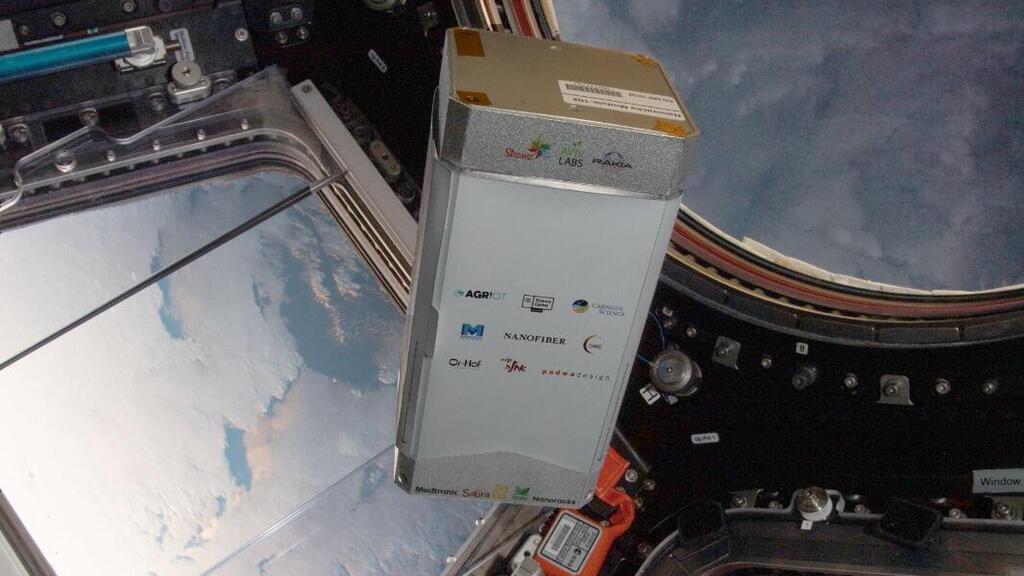Getting your Trinity Audio player ready...
The humus chickpeas launched into space as part of an Israeli researcher's experiment have successfully sprouted in what looks to be a technological breakthrough.
The experiment conducted in cooperation with NASA began in February when 28 chickpeas were launched to the International Space Station to study the sprouting of a seed in space.
Founder and CEO of Aviv Labs Dr. Yonatan Winetraub said as of now, 26 out of 28 carefully selected chickpea seeds from Israel have sprouted. "I am pleased to announce that the experiment has succeeded far past our expectations," Dr. Winetraub said.
"I am proud to announce that for the first time in history, hummus seeds were able to germinate and grow in space, and we have paved the way for a nutritional future in space, and later on the moon and even Mars," he said.
Winetraub, 35, is one of the founders of SpaceIL, an Israeli organization that attempted to land the Beresheet spaceship on the moon. The landing was partially successful with the vessel crash-landeing on the moon’s surface on April 11, 2019.
"We have set a number of goals for the experiment, including the construction of a tiny greenhouse, which can be used on a flight to the moon using a dedicated test box, sprouting hummus grains in zero gravity, and growing the chickpeas in a gel substrate for two weeks," Winetraub described.
Winetraub also connected young space enthusiasts to help him with his project, with Israeli students from 1,000 classrooms growing chickpeas in boxes they have constructed and served as a control group to compare the processes of cultivating chickpeas with gravity versus those grown in space without it.
Israeli Hummus chickpeas grow on the International Space Station
(Video: Aviv Labs)
"Not only did our hummus seeds successfully germinate in space, with 26 out of 28 specially selected strain of chickpeas, but it also seems that the growth rate of the roots in the early days was much faster than the rate of growth on earth. The growth rate has also surprised us, and we will continue to explore this in-depth along with the data we get from NASA and the seeds that will return to earth later," he said.
The plants inside the white metal box that was sent to space are currently refrigerated until they are brought down to Earth in June.
Alongside the main goals of the project, Aviv Labs also had high-risk objectives, as the most prominent of them was the growth of the chickpeas for four weeks until it filled the entire greenhouse with leaves and stems.
"The growth of the hummus grains is a partial success because not all stems grew upward, and at some point, the growth stopped. We speculate that the reason for this lies in the accelerated growth of bacteria in space compared to earth and the sensitivity of the strain to the lack of gravity, but we will know more when the chickpeas will return to earth," Dr. Winetraub said.
Dr. Winetraub and his fellow scientists don't plan to stop at the International Space Station. "We aim for a follow-up experiment, we strive to grow hummus on the moon, and the fact that there is a sixth of gravity versus zero gravity in space will be in our favor, and it will probably help the hummus stems to grow in the right direction," he added.
"We are planning to send a similar greenhouse box directly to the moon, thus hummus may become the first food to grow on an extraterrestrial celestial body. As an intermediate stage, we will launch the greenhouse in June, without the hummus this time, on a six-month journey around the earth, an experiment in which we will test if it works properly when exposed to cosmic rays and vacuum over time. It would be an important step on the way to the moon because the environment there is much more hostile than the one in the space station."
Dr. Winetraub also addressed the primary goal of the experiment, to grow extraterrestrial food for manned missions on other planets. "If space is challenging nutritionally, then the moon and Mars are even more challenging.
"When future colonies are established, they will have to use plants for food, and recycling of air and water. Because of the vast distances, we cannot send supply vessels to distant colonies. Therefore, it is very important to grow high nutritional-value plants, and in a much faster growth phase than on earth. The hummus can be an important tool for future pioneers on the way to the moon and Mars, and it is known that where there is hummus there is life."






